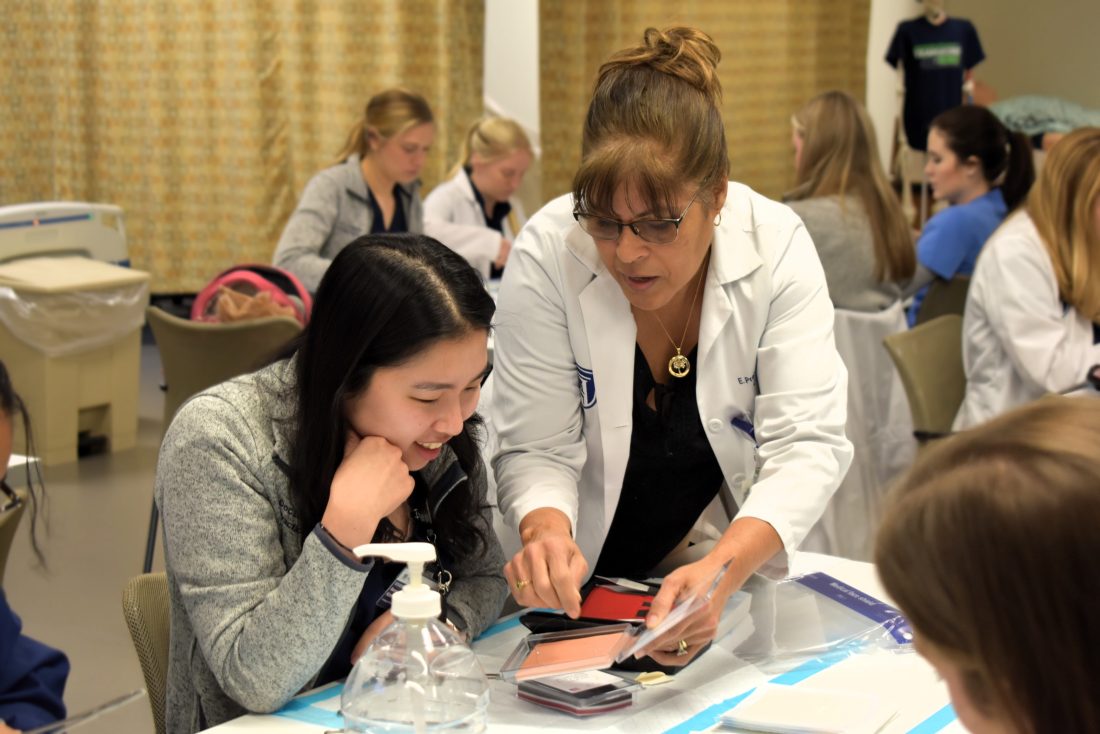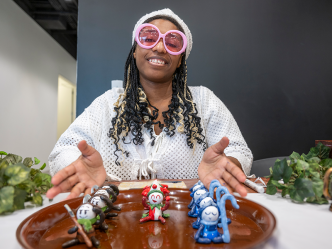In 2004, the American Association of Colleges of Nursing called for doctorate-level education to become the level of preparation necessary for advanced nursing practice. Augusta University’s College of Nursing established its Doctor of Nursing Practice program the following year.
To date, more than 73,000 nurses have obtained their DNP across the nation, which makes up about 1.2% of nurses. According to the AACN, nurse leaders obtaining a DNP are prepared at the highest level of nursing practice to improve patient outcomes and enhance evidence-based practice.
While there is an effort to increase doctorally prepared nurses, there has also been a focus on hiring and retaining a more diverse workforce within health care. Organizations like DNPs of Color have made it their mission “to increase diversity in doctoral studies, clinical practice and leadership for nurses.” Included in their efforts is National DNPs of Color Day, held this year on Oct. 19.

Shakira Lynn, DNP, an assistant professor in CON’s prelicensure department, said obtaining her DNP has supported her professional goal of becoming a nursing professor. She feels equipped to recognize the complexities of common health care trends so that she can be a viable resource for students.
“I advise other nurses considering a DNP to face school challenges with a positive attitude,” said Lynn. “This degree will open more career opportunities and advance their nursing practice.”
Lynn has participated in mission trips to Honduras, Africa and Haiti and cites these experiences as opportunities to learn about cultural sensitivity and recognition of environmentally driven diseases.
“Having a terminal nursing degree helped me face the challenges of assessing and treating many diseases and illnesses in impoverished communities throughout the world,” she said. “I have integrated social determinants of health to guide nursing care for underprivileged patients.”
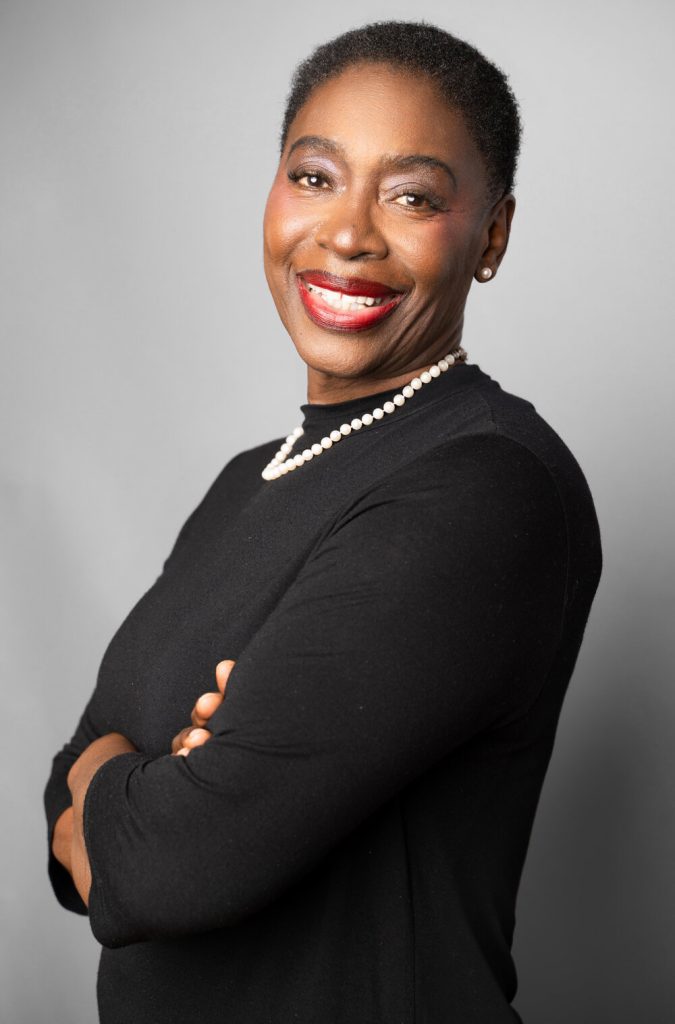
Denotra Gaillard, DNP, an assistant professor in AU’s Doctor of Nursing Practice program who was awarded the Outstanding Faculty Clinician of the Year in 2023, said she realized that with higher education and becoming an expert clinician, she could take charge of her career while accentuating the importance and health of Black women. This commitment is demonstrated by her 10-year alliance with the annual McDaniel Tea Party for African American Women, where she speaks on the health needs of Black women who have a disparity in caring for their own health needs.
“In my role as a clinician, I found breast cancer in five food-service workers with little or no access to care and obtained five rapid response referrals for treatment giving them the best chance for survival,” said Gaillard, who demonstrated her compassion and determination to make a difference, ultimately upholding the NP mantra.
Gaillard, who is a 2007 graduate of the DNP program when it was part of the Medical College of Georgia, initiated NP Grand Rounds, a program that showcases exceptional NP talent monthly, highlighting AU faculty practice, clinicians and national experts.
“I also have the privilege to oversee many impactful clinical engagement activities of our future workforce of NPs, which are making great advances in health care delivery,” said Gaillard.
She serves as a member of the Georgia Nursing Leadership Coalition and works on their task force for public health advocacy. Within the community of her hometown of Columbus, she supports advanced practice registered nurses with active state and national community engagements and podiums. In 2024, she was awarded the AANP State Award for Excellence for the state of Georgia.
“My advice to all nurses: Do your research on the definition and role of DNP,” said Gaillard. “If this is the path that captures your heart, move forward with determination and confidence. You will have many unforeseen opportunities to make life better for those you touch.”
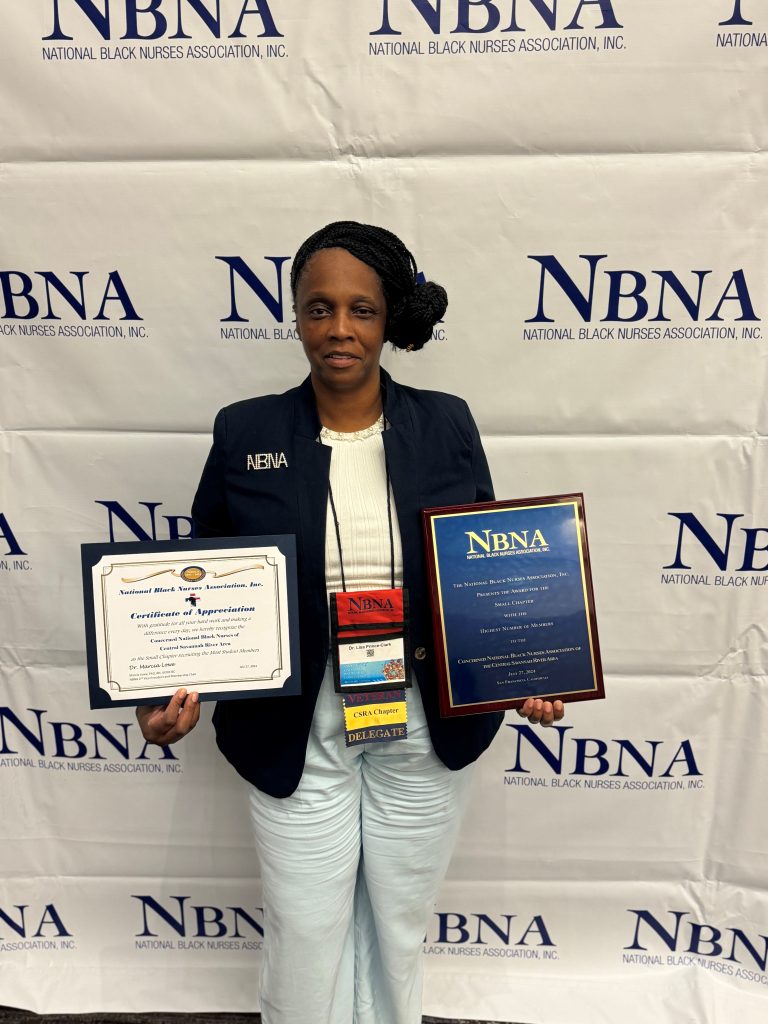
Lisa Prince-Clark, DNP, an assistant professor in the prelicensure department, credits her DNP with advancing her ability to teach in the classroom while building on her academic skills as a nurse educator outside the clinical learning environment.
“To me, being a DNP of color means that I am able to give students the encouragement and compassion that women of color can do anything with strength of community,” said Prince-Clark.
In 2023, she published her dissertation in a nursing journal and has recently been approved for a research grant and approval from Sigma Theta Tau for her publication titled “IRB Approval 1621973-1 Building Academic Success in the Remediation of Pre-Licensure Nursing Students.”
Along with being a DNP, Prince-Clark, who is a 2006 alumna of AU’s legacy institution Augusta State University, was a certified medical-surgical nurse and practiced for 25 years before retiring. As a faculty member, she enjoys the opportunity to support students and assist them in building resilience on their journey to becoming a BSN.
To those interested in earning a DNP, she said, “Take your time and trust the process. You can support research, as well as quality improvement in hospitals and university settings. To quote Maya Angelou, ‘Do the best you can until you know better. Then when you know better, do better.’”
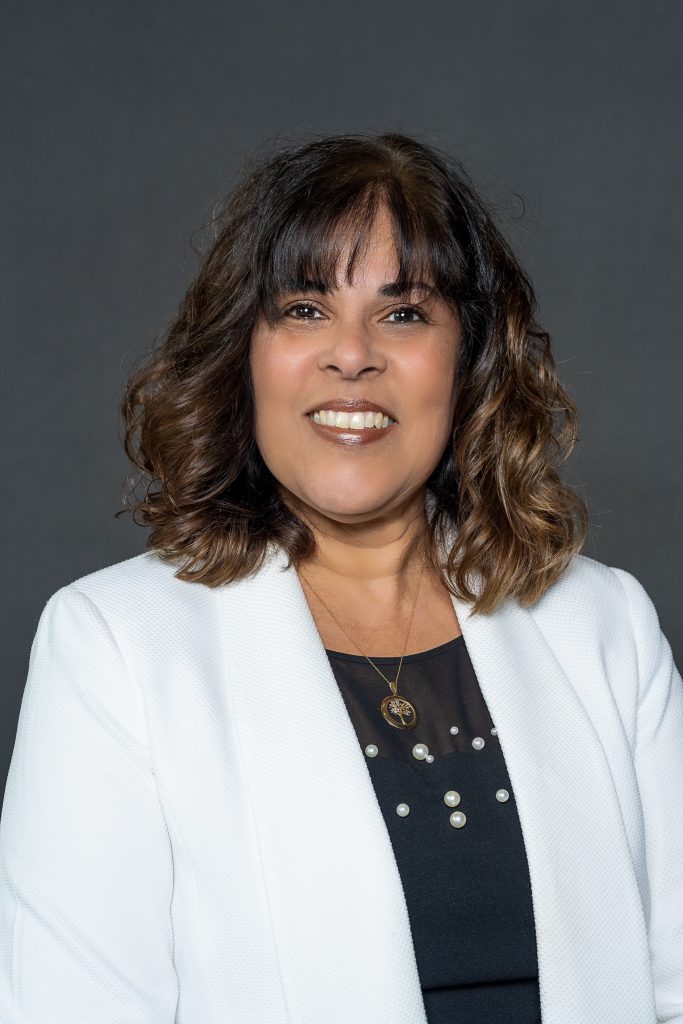
Elena Prendergast, DNP, an assistant professor in the DNP department, has consistently been acknowledged for her passion and commitment in the field of nursing.
“Being a DNP of color is not intended to be a term which causes division but a term of distinction,” said Prendergast. “I am a Latina advanced practice nurse who has earned a clinical doctorate. Professionally, I had never encountered someone like me. By identifying as a DNP of color, I hope I can serve as a mentor and inspiration for current and future nurses.”
Prendergast said earning her DNP opened new doors for her. Along with serving as the first Latina faculty and program director in CON, she had the opportunity to be a keynote speaker for the South Florida Council of Advanced Practice Nurses and the Augusta Chapter of the Oncology Nurses Society. She has served as a subject matter expert, sat on professional committees and advocated at the local and national levels.
She has found further recognition through her Distinguished Service to Society and Nurse Practitioner Leadership award from Frontier Nursing University and her 2021 Outstanding Faculty Member Award.
Prendergast is one of only two nurse practitioners to be the featured medical professional for the Augusta magazine, Medical Professionals, and her commitment to the specialty of palliative care has been acknowledged by several organizations, including DNPs of Color and the American Academy of Nurse Practitioners.
“In health care professions, the terminal degree, the highest achievable degree in a professional discipline, has become the standard,” said Prendergast. “I enter spaces and sit at tables with the confidence I have the qualifications needed. In the end, serving in these positions gives us the influence we need to improve patient outcomes.”

Kimberly Rodriguez, DNP, is an assistant professor in AU’s DNP program. She is also a certified registered nurse anesthetist and recently became certified as a Certified Healthcare Simulation Educator.
“Over the years, I have developed a passion for health care simulation,” said Rodriguez. “As health care evolves, simulation provides an opportunity for students to strengthen clinical skills in a safe environment before working with real patients. I decided to pursue the CHSE certification so that I could stay abreast in evidence-based simulation education to ensure we are providing our students with simulation experiences that are based on best practice.”
She recognizes how earning her DNP, becoming the first in her family to obtain a doctoral degree, has not only supported her career goals but also helped her to become an inspiration to others.
“It’s put me in a position to participate in different leadership opportunities within academia that I may not have had the confidence to pursue earlier in my career,” said Rodriguez. “I know now that I can empower and inspire other minorities whose goal is to follow in my footsteps.”
 Augusta University
Augusta University
